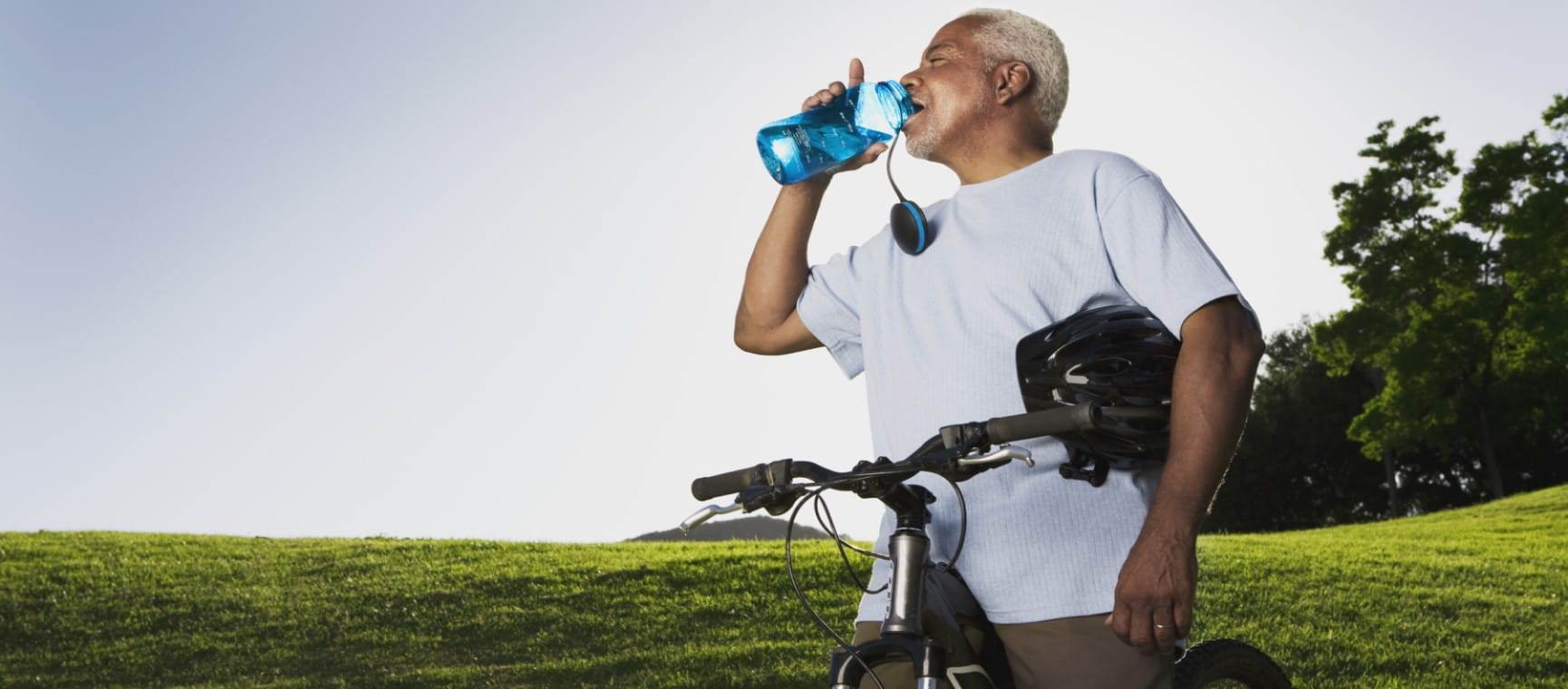How to Stay Hydrated: Signs You're Not Drinking Enough Water

Maintaining adequate hydration is crucial for numerous bodily functions. Water constitutes a significant portion of our body weight and participates in temperature regulation, nutrient transport, waste removal, and joint lubrication. Dehydration, the state of not having enough water, can impair these functions and lead to various health problems. Recognizing the signs of dehydration is essential for proactively maintaining optimal hydration levels.
Understanding the Importance of Hydration

Water plays a vital role in virtually every physiological process. It facilitates the transport of oxygen and nutrients to cells, while simultaneously removing waste products. Furthermore, water helps regulate body temperature through sweating. Insufficient water intake compromises these processes, leading to reduced physical and cognitive performance. For instance, even mild dehydration can impair concentration, memory, and mood.
Recent Findings on Hydration's Impact
Recent research emphasizes the far-reaching effects of hydration. Studies conducted since 2020 reveal that adequate water intake is associated with improved cardiovascular health. Furthermore, research suggests that proper hydration may play a role in preventing chronic diseases like kidney stones. The European Food Safety Authority (EFSA) has established guidelines for daily water intake based on age, sex, and activity levels, highlighting the importance of personalized hydration strategies.
Common Signs of Dehydration

Several indicators can signal that your water intake is insufficient. Recognizing these signs early allows for timely intervention and prevention of more severe dehydration.
Thirst
Thirst is the most obvious and immediate indicator of dehydration. It is the body's signal that its water reserves are running low. However, relying solely on thirst can be misleading, especially in older adults, whose thirst sensation may be diminished.
Dark Urine
Urine color is a reliable indicator of hydration status. Well-hydrated individuals typically produce pale yellow or clear urine. Darker urine suggests that the kidneys are conserving water, a sign of dehydration. The concentration of waste products increases, leading to the darker color.
Infrequent Urination
Reduced frequency of urination is another sign. A healthy individual typically urinates several times throughout the day. Infrequent urination indicates that the body is retaining fluids to compensate for dehydration.
Dry Mouth and Skin
Dehydration can lead to dryness in the mouth, throat, and skin. Reduced saliva production contributes to dry mouth, while decreased skin elasticity can make the skin feel tight and less supple. Checking skin turgor (how quickly the skin returns to normal after being pinched) can provide an assessment of hydration levels.
Headaches and Dizziness
Dehydration can cause headaches and dizziness due to reduced blood volume and oxygen supply to the brain. These symptoms can be particularly noticeable during physical activity or in hot weather.
Muscle Cramps
Electrolyte imbalances, often associated with dehydration, can contribute to muscle cramps. Water helps regulate electrolyte levels, and insufficient fluid intake can disrupt this balance, leading to muscle spasms.
Fatigue and Irritability
Dehydration can impair energy levels and cognitive function, resulting in fatigue, irritability, and difficulty concentrating. The body's metabolic processes are less efficient when water is scarce, leading to a decline in overall performance.
Strategies for Maintaining Hydration
Adopting proactive strategies is crucial for preventing dehydration. Consistent fluid intake throughout the day is more effective than attempting to rehydrate only when feeling thirsty.
Establish a Hydration Routine
Develop a consistent routine of drinking water at regular intervals. Start the day with a glass of water and continue to drink throughout the day, especially before, during, and after physical activity. Setting reminders can be helpful.
Carry a Water Bottle
Keeping a reusable water bottle readily available encourages frequent sipping throughout the day. This simple practice can significantly increase daily water intake.
Eat Hydrating Foods
Fruits and vegetables with high water content, such as watermelon, cucumbers, and strawberries, can contribute to overall hydration. Incorporating these foods into the diet provides both fluids and essential nutrients.
Monitor Urine Color
Regularly checking urine color can provide valuable feedback on hydration status. Aim for pale yellow or clear urine, adjusting fluid intake accordingly.
Consider Electrolyte Drinks
During prolonged physical activity or in hot weather, electrolyte drinks can help replace fluids and electrolytes lost through sweat. These drinks contain minerals like sodium and potassium, which are essential for maintaining fluid balance.
Conclusion
Maintaining adequate hydration is paramount for overall health and well-being. Recognizing the signs of dehydration and implementing proactive hydration strategies can help prevent adverse health outcomes. Prioritizing consistent fluid intake throughout the day is crucial for supporting optimal bodily functions.

Comments
Post a Comment